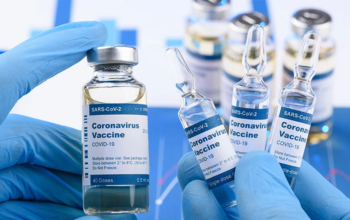So far, six major vaccines have shown promising results in protecting people against COVID-19.
- Pfizer-BioNTech (mRNA)
After conducting their final efficacy analysis, the two drug companies announced their vaccine is more than 94 per cent effective in over 65s. The findings were based on a study of 41,000 participants around the globe. The jab has been approved for use in the UK and delivery has started.
Moderna (mRNA).
In a trial of more than 30,000 Americans, the vaccine showed to be nearly 95 per cent effective. This vaccine has been approved for use in the UK, with delivery expected in the spring.
Oxford University-AstraZeneca (viral vector).
The vaccine was shown to be, on average, 70 per cent effective in an analysis of phase 3 trial data. While administering two full doses of the vaccine a couple of months apart yielded 62 per cent effectiveness, a half dose followed by a full one later showed to be 90 per cent effective. The jab has been approved for use in the UK and it is currently being administered across the UK.
Novavax (‘subunit’ or protein adjuvant).
The vaccine has been shown to be 89.3 per cent effective in large-scale UK trials. Significantly, it is the first jab shown to be effective against the new UK variant of COVID-19 in such a trial. The government has ordered 60 million doses of the jab, which will be produced Stockton-on-Tees, England.
Valneva (inactive whole virus).
The vaccine is being trialled on 150 volunteers at testing sites in Birmingham, Bristol, Newcastle and Southampton. If these tests show the jab produces an effective immune response to the virus, a larger trial of 4,000 UK volunteers is planned for April 2021.
Gamaleya (Sputnik V viral vector).
In a press release, the Gamaleya National Center of Epidemiology and Microbiology in Moscow claimed a large-scale Russian study saw 92 per cent efficacy for its vaccine. However, other scientists have voiced concerns this claim is based on too few cases. Although the vaccine was trialled on 18,000 people, the efficacy claim has been based on an analysis of only 39 individuals to test positive with coronavirus.
CoronaVac (inactivated vaccine)
Developed by Beijing Sinovac
It works by using killed viral particles to expose the body’s immune system to the virus without risking a serious disease response.
By comparison the Moderna and Pfizer vaccines being developed in the West are mRNA vaccines. This means part of the coronavirus’ genetic code is injected into the body, triggering the body to begin making viral proteins, but not the whole virus, which is enough to train the immune system to attack.
“CoronaVac is a more traditional method [of vaccine] that is successfully used in many well known vaccines like rabies,” Associate Prof Luo Dahai of the Nanyang Technological University told the BBC.



